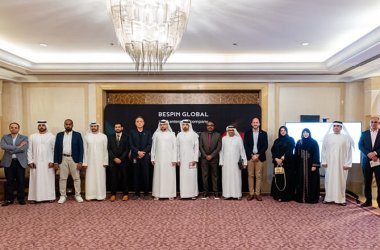 Dell today announced the expansion of three open source software and cloud computing initiatives: the formalisation of Project Sputnik resulting in a Dell product in autumn 2012, its Emerging Solutions Ecosystem to include Pentaho and Datameer, and enhancements to its OpenStack-Powered Cloud solution and the Dell Cloudera solution.
Dell today announced the expansion of three open source software and cloud computing initiatives: the formalisation of Project Sputnik resulting in a Dell product in autumn 2012, its Emerging Solutions Ecosystem to include Pentaho and Datameer, and enhancements to its OpenStack-Powered Cloud solution and the Dell Cloudera solution.
Originally a six-month exploratory pilot to create an Ubuntu-based developer laptop, Dell is taking Project Sputnik from pilot to product this autumn. At that time the company plans to deliver an official developer laptop based on the Dell XPS 13 with Ubuntu 12.04LTS preloaded, available in select geographies.
Made possible by an internal innovation fund, the system will offer developers a complete client-to-cloud solution. The included software will allow developers to create “microclouds” on their laptops, simulating a proper, at-scale environment, and then deploy that environment seamlessly to the cloud.
“Project Sputnik is a great example of the employee-driven innovation we built Dell’s incubation programme to enable,” said Nnamdi Orakwue, executive sponsor of the Dell incubation program and executive assistant to Michael Dell.
“This project represents the first of many new ideas Dell employees will test with customers or partners through the program, and we look forward to supporting Sputnik to be successful as it becomes a product this autumn,” Orakwue added.
As a new member of Dell’s Emerging Solutions Ecosystem, Datameer has completed Dell’s certification process with its Datameer Analytics Solution (DAS) that enables business users, analysts and data scientists to access, analyse and visualise massive amounts of data. Dell is offering DAS in conjunction with its Apache Hadoop solutions.
Pentaho joined the Ecosystem with its Business Analytics solution, which couples data integration with business analytics to easily access, integrate, visualise, explore and mine business data. Datameer’s business intelligence platform uses a spreadsheet user interface; while Pentaho leverages a graphical extract, transform and load (ETL) environment for creating and managing Hadoop MapReduce jobs.
“With our partner programmes, we can meet customers where they are. For those with in-house developer expertise, Emerging Solutions Ecosystem partners can help quickly help fill gaps in your cloud or big data taxonomy,” said John Igoe, executive director at Dell open source cloud and big data solutions.
“These cloud and big data solutions are key to the future of IT, so Dell is committed to bringing these and future technologies to enable customers’ to quickly and cost effectively stand up OpenStack cloud or Hadoop clusters.”
To help customers build cloud infrastructure, Dell’s OpenStack-Powered Cloud solution is now available with additional server, networking and services options. Along with OpenStack Essex, customers can buy with Dell 12th generation PowerEdge servers including the R720, R720XD, or PowerEdge C servers; PowerConnect or Force10 switches; services from Dell, Canonical or Mirantis.
To quickly stand up a big data cluster, the Dell Cloudera solution is now available with additional server, networking and services options. Along with CDH4, customers can buy this solution with Dell 12th generation PowerEdge servers including the R720, R720XD, or PowerEdge C servers; PowerConnect or Force10 switches; services from Dell and Canonical.
Dell SecureWorks recently leveraged this solution, which includes Cloudera’s distribution of Apache Hadoop running on optimised Dell PowerEdge C2100 servers, and delivered with joint service and support along with the Dell Crowbar software framework, a Dell-developed installer to speed and ease bare-metal deployments.
These combined resources helped SecureWorks accelerate the deployment of a robust Hadoop environment by more than six months, and helped to slash the organisation’s storage per gigabyte costs from seventeen dollars to 23 cents.





